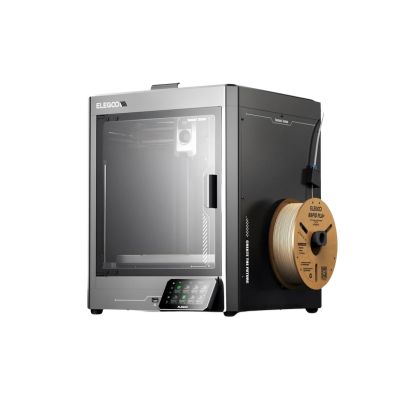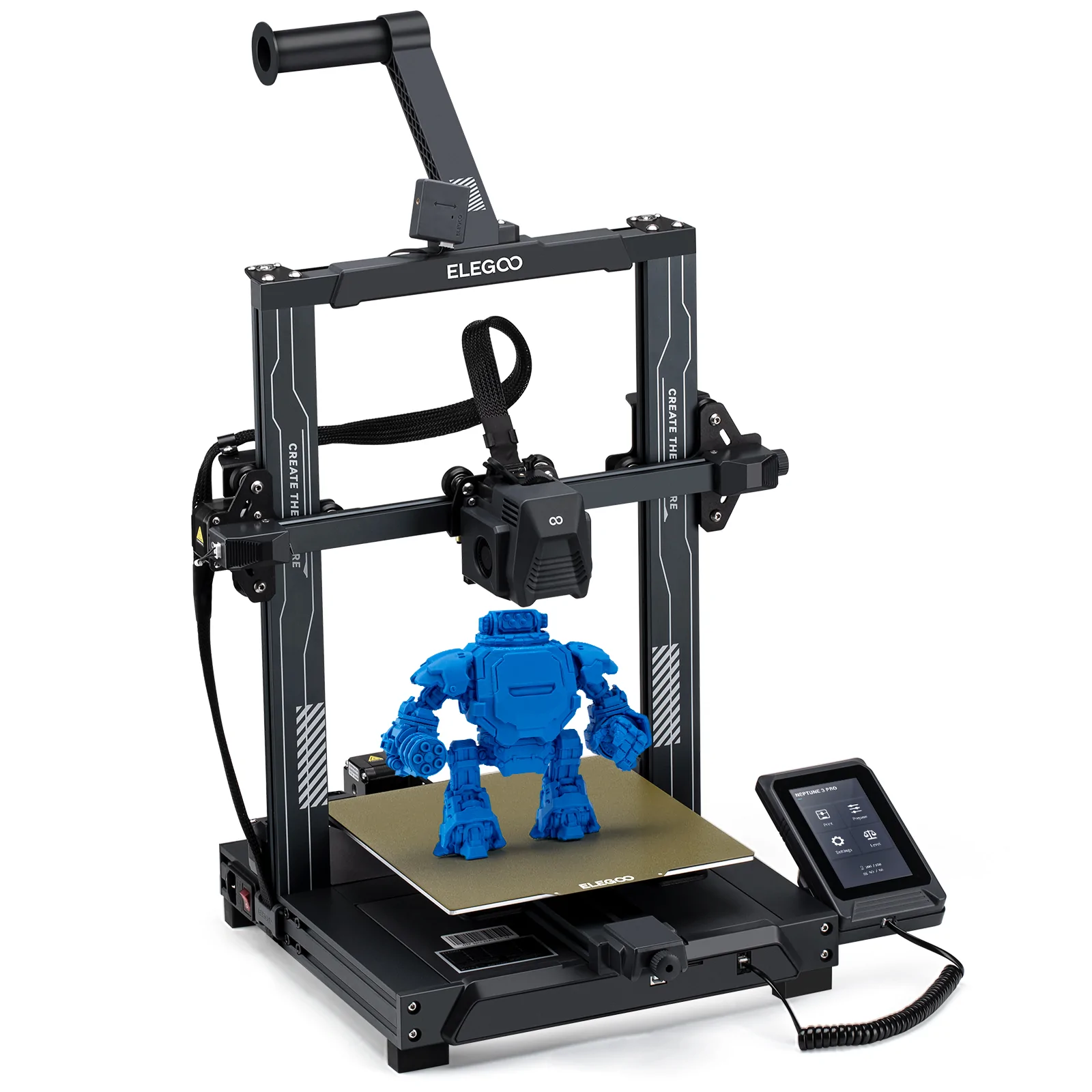Compare Centauri Carbon vs Neptune 3 PRO
Comparison between the best 3D printers
Choose the best 3D printer at the best price. The cheapest 3D printers are here.
Buy a 3D printer here with 3D Fila.
 |
 |
|
| Model | Centauri Carbon |
Neptune 3 PRO |
| Printing Material | Filament | Filament |
| Buy Filament for Elegoo Centauri Carbon | Buy Filament forElegoo Neptune 3 PRO | |
| Estimated price | $500,00 | $230,00 |
| Manufacturer | Elegoo | Elegoo |
| Release Year | 2025 | 2022 |
| Print Volume [mm] | 256x256x256 | 225x225x280 |
| Printer Size [mm] | 500x500x600 | 445x515x475 |
| Weight [kg] | 17,5 | 8,1 |
| Power Loss Recovery | YES | YES |
| Enclosed printer | YES | NO |
| Bed Leveling | Automatic | Automatic |
| Filament End Sensor | YES | YES |
| Bed type | Heated | Heated |
| Power supply system | Direct Drive | Direct Drive |
| Standard nozzle | 0,4 | 0,4 |
| Maximum Nozzle Temperature [°C] | 300 | 260 |
| Maximum Bed Temperature [°C] | 110 | 100 |
| Maximum printing speed [mm/s] | 500 | 80 |
| Filament holder | YES | YES |
| Camera for supervision | YES | YES |
| Recommended filaments | PLA, PETG, ABS, ASA, TPU, NYLON, CARBON FIBER | PLA, PETG, Tritan, Flex, ABS |
| Recommended slicers | Elegoo Slicer, Orca Slicer | Cura, Simplify, Slic3r, IdeaMaker e outros |
| Maximum Resolution [mm] | 0,1 | 0,1 |
| Processor | ||
| Display | Touchscreen 4,3'' | Display touchscreen 4,3'' |
| Power Supply | 350 W | 250 |
| Connectivity | WiFi, SD, USB | |
| Operating systems | Windows, Linux e Macbook | Windows, Mac, Linux |
| Date of registration in the system | 2025-02-10 | 2023-03-02 |
| Release date | 2025 | 2022 |
| Extra features | The Elegoo Centauri Carbon is a CoreXY 3D printer with an enclosed structure, direct drive extruder, and hardened steel components for abrasive materials. It features automatic bed leveling, a touchscreen, a filament cutting system, and an elongated nozzle designed to reduce clogs. It offers Wi-Fi connectivity for remote file transfer and runs on a Klipper-based firmware, providing advanced control and precise adjustments. | The Elegoo Neptune 3 Pro printer stands out for its easy assembly and automatic bed leveling, ideal for different levels of users. Equipped with a direct-drive extruder and dual gears, it offers excellent adhesion to slippery materials such as TPU. It incorporates dual screws on the Z-axis, ensuring stable prints, and features an integrated task light for improved visibility. With a PEI-coated build plate and a detachable touchscreen, it combines functionality and convenience. The printer also features an efficient cooling system, filament sensor and a simplified user interface. |
| Support for multiple colors and materials (AMS and CFS) | NO | NO |
Notes * |
||
| Cost-benefit | 8 / 10 | 6 / 10 |
| Hardware | 5.4 / 10 | 2.4 / 10 |
| Tela | . | . |
| Print volume | 4 / 10 | 3 / 10 |
| Performance | 4 / 10 | 0 / 10 |
Conclusion |
| In comparing the Elegoo Centauri Carbon and the Elegoo Neptune 3 Pro, we find two capable 3D printers that cater to different user needs and budgets. The Centauri Carbon stands out with its advanced features, larger print volume, and robust design, making it a solid choice for more demanding projects and users who require versatility in materials, including abrasive filaments. Its enclosed structure, automatic bed leveling, and higher temperature capabilities provide improved printing performance and reliability. On the other hand, the Neptune 3 Pro, while more budget-friendly, offers essential features that appeal to hobbyists and beginners. It is easier to assemble, with a simplified user interface and good print consistency for a range of common filaments. However, its smaller print volume and lower maximum temperatures might limit its use for certain applications. Ultimately, the choice between the two models hinges on the user’s specific needs. For those prioritizing advanced capabilities, larger print volumes, and the ability to handle various materials, the Centauri Carbon presents a strong value despite its higher cost. In contrast, the Neptune 3 Pro is an excellent entry-level option that offers a good balance of features and affordability. Considering the overall value, users should evaluate their project requirements and budget when making a decision. |

